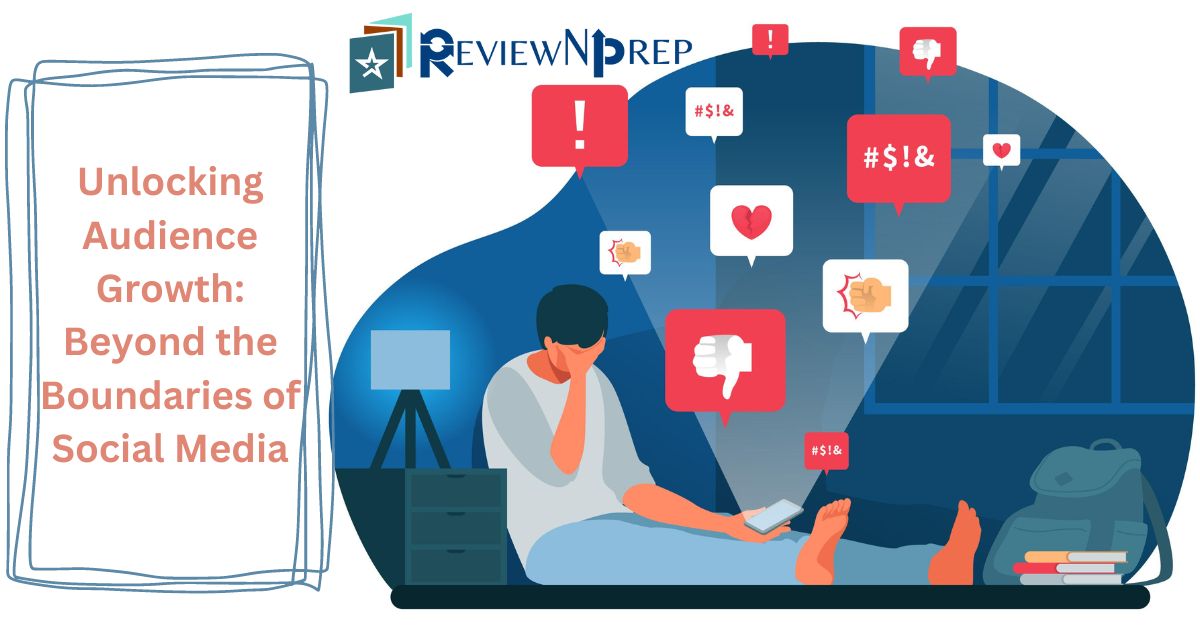In today’s digital age, social media has become an integral part of our lives, with platforms like Facebook, Instagram, and Twitter dominating the online landscape. While social networks can be a powerful tool for building an audience, it’s not the only way to reach and engage with your target market. In this blog post, we will explore alternative strategies that can help you build your audience without relying solely on social media platforms.
There is no shortage of social platforms and content creation for these social channels can get pretty taxing. By diversifying your approach, you can foster meaningful connections and create a loyal following outside the confines of your social media presence.
1. Start a Blog
Blogging is an effective way to build your audience while showcasing your expertise and providing valuable content. By consistently publishing high-quality blog posts, you can attract readers who are interested in your type of content.
Optimize your blog for search engines to increase your visibility and use analytics tools to understand your audience better. Encourage readers to subscribe to your blog to receive regular updates, creating a direct channel of communication.
Also, consider enabling comments on the blogs and engage with the audience to have a greater impact on your marketing strategy.
2. Create Engaging Email Newsletters
Email marketing is a direct and personal way to connect with your audience. Offer a compelling lead magnet, such as an ebook or a free resource, to encourage visitors to subscribe to your email list.
Craft informative and engaging newsletters that provide value, share insights, and promote your products or services. Personalize your emails and segment your list based on subscribers’ interests to deliver targeted content. Wherever possible try to include visual content instead of plain text.
3. Participate in Industry Forums and Communities
Joining online forums and communities related to your niche allows you to connect with like-minded individuals and establish yourself as an authority. Provide thoughtful responses, answer questions, and offer valuable insights.
By engaging in meaningful discussions, you can gain visibility and build trust with potential audience members. Include a link to your website or blog in your forum profile or signature to drive traffic back to your platform.
4. Guest Blogging and Collaboration
Reach out to other bloggers, influencers, or industry experts in your niche and propose collaboration opportunities. Guest blogging on established platforms allows you to tap into existing audiences and gain exposure.
By contributing high-quality content, you can showcase your expertise and attract new followers to your own platform. Collaborate on webinars, podcasts, or interviews to further expand your reach and connect with a broader audience.
Additionally, you can tap into the multi-billion dollar influencer marketing to let others do the hard work for your brand. Influencers can create content types that would cater to your audience without you having to do it on your own.
5. Host Webinars and Online Events
Hosting webinars and online events enables you to share knowledge, engage with your audience in real-time, and establish yourself as an authority in your field. Promote your events through your website, email list, and partnerships with other influencers or industry experts.
Webinars and online events offer a valuable opportunity to connect directly with your audience, answer their questions, and provide valuable insights.
6. Leverage the Power of SEO
Search engine optimization (SEO) is essential for building organic traffic to your website. Conduct keyword research to understand what your audience is searching for and optimize your website and blog content accordingly.
Focus on creating high-quality, informative, and engaging content that aligns with your target audience’s interests and needs. By consistently applying SEO best practices, you can increase your website’s visibility and attract organic traffic.
7. Cultivate Relationships with Traditional Media
While social media dominates the digital landscape, traditional media outlets such as newspapers, magazines, and television still hold influence. Business owners should establish relationships with journalists, reporters, and editors in their industry.
Offer yourself as a resource for expert commentary or contribute guest articles to relevant publications. Being featured in traditional media can significantly boost your credibility and reach a broader audience.
8. Affiliate Marketing
Affiliate marketing has emerged as a powerful strategy for building an audience and generating revenue. The process of affiliate marketing is relatively straightforward. You can establish an affiliate program for your online courses, digital products like ebooks, or any other offerings. This program enables past students and other course creators to join and endorse your products, recommending them to a wider audience.
Conclusion
While social media can be a powerful tool for audience building, it’s important not to rely on it exclusively. By diversifying your strategies and exploring alternative avenues you can build a loyal audience without being tied solely to social media. Hopefully, the approaches listed above will allow you to establish your expertise, provide valuable content, and connect directly with your target market.
Social media marketing is not one-size-fits-all. To achieve optimal level of business growth, your social media strategy should evolve based on the market and your audience. By adopting a multi-faceted approach, you can create a robust and sustainable audience base that extends beyond the limitations of social media platforms. So, start exploring these business strategies today and watch your audience grow and thrive.
Further Reading: Designing a Sales Page that Converts: Best Practices for Online Course Creators
